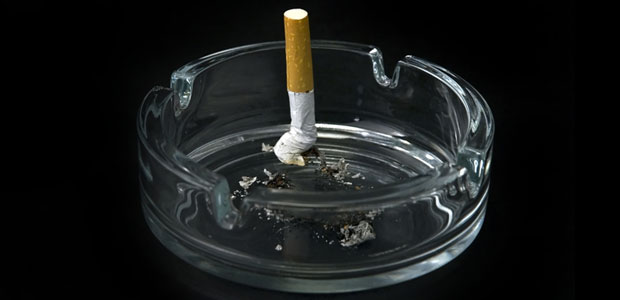Advertisement
World No Tobacco Day – Butt Out!
Today is World No Tobacco Day, a day established by the World Health Organization’s (WHO) Tobacco Free Initiative to focus the world’s attention on the effects of smoking and what they refer to as the “global tobacco epidemic’s toll of death, sickness, and misery.” Tobacco facts 22% of Canadians currently smoke (2010 statistics) 1 in … Continued

Today is World No Tobacco Day, a day established by the World Health Organization’s (WHO) Tobacco Free Initiative to focus the world’s attention on the effects of smoking and what they refer to as the “global tobacco epidemic’s toll of death, sickness, and misery.”
Tobacco facts
- 22% of Canadians currently smoke (2010 statistics)
- 1 in 10 smokers will get cancer
- 1 in 5 smokers will develop chronic obstructive pulmonary disease (COPD)
- 6 million people worldwide die from tobacco use
- 80% of tobacco deaths will occur in the developing world
- 1/2 of its users are killed by tobacco
- 4,000 chemicals are found in cigarettes
- 250 known to be harmful
- 50 known to cause cancer
- 600,000 worldwide die from exposure to second-hand smoke
- 100% smoke-free environments are the only effective protection against second-hand smoke
- 40% of all children are regularly exposed to second-hand smoke at home
- 31% of deaths attributable to second-hand smoke occur in children
- 22 of the world’s 100 most populous cities are smoke-free
Tobacco industry interference
The WHO’s focus for this year’s No Tobacco Day is tobacco industry interference. The world body wants to highlight and counter the tobacco industry’s aggressive attempts to undermine tobacco control efforts in countries around the world.
Canada’s regulations
In Canada, a long line of constitutional challenges have been launched by tobacco companies against federal tobacco advertising laws. The latest, launched by Imperial Tobacco Ltd and JTI-Macdonald Corp, challenge new regulations taking effect next month which will require health warnings on at least 75 percent of the product’s package (up from 50 percent).
The tobacco companies claim that restrictions on advertising infringe upon their freedom of expression. They have been challenging the progressively more stringent laws since the first of these laws was passed.
Australia goes further
The challenge by Imperial and JTI-Macdonald suggests that Canada’s new regulations “go too far.” One country that has gone even farther is Australia where new regulations to be implemented starting in December 2012 require plain packaging.
This means no branding (colours, imagery, corporate logos and trademarks), with the company’s brand name in a mandated size, font, and location on the pack, in addition to the health warnings and other legally mandated information (toxic constituents). All packages are standardized, including its colour.
Interestingly, it was in Canada that the concept of plain packaging was first developed—in the 1990s. But when tobacco industry-sponsored lobbyists made enough noise, the proposal was dropped.
If you smoke
Remember that cigarette smoke can have negative effects not only on your health, but on your family’s health as well as the health of the environment. And though the effects of second-hand smoke are well known, there are other potentially dangerous effects from what is now called third-hand smoke, a term coined in a study that appeared in the 2009 journal Pediatrics: any tobacco residue that adheres to dust particles, furniture, carpets, drapes, and clothes as well as skin and hair.
Though most people who smoke don’t want to smoke, quitting is not easy. Check this article for an “Addiction prescription.”





